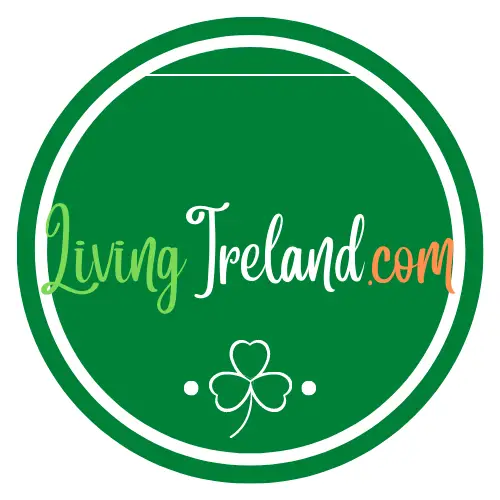Today the majority of people in Ireland speak English as their first language.
However, all Irish people are taught their native language at school, and a lot of Irish also speak their native language as a second language to varying levels of fluency. This language is technically called “Irish Gaelic”; however, most people simply call it “Irish.”
What Language do they Speak in Ireland?
Irish in Ireland today
There are approximately 2 million Irish speakers around the world but only 170,000 speak it as a first language. The vast majority of Irish speakers (98%) live in Ireland but it’s also common to find Irish spoken and celebrated amongst ex-pat communities and the Irish diaspora around the world, including in the USA, the UK, and New Zealand.
Back on the Emerald Isle, the language generally exists today as a secondary language and more so an expression of culture rather than something used day-to-day in normal life. Sadly, only 10.5% of Irish people speak it daily or weekly but it’s predicted that this will grow again.
The History of the Irish Language
The history of the Irish language is long and complex so we’ll give a quick overview of where it started, and how we ended up where we are today here in Ireland.
Irish is an example of a Celtic language; the Celts lived on the British Isles (British Isles includes Ireland, England, Scotland, Wales and surrounding islands) before future Roman invasions. Due to the primitive and oral nature of the language at this stage (little was recorded or written down), very little has been recovered.
Between 900-1200, the Irish became influenced by their Scandinavian invaders, such as “Pingin”- Penny. When the Anglo-Normans came over, again new words entered, such as ” giústis,” justice. However, unlike in England, where the Norman language had a significant impact on English, in Ireland, the Normans mostly adopted the native language and created a hybrid.
Between 1200-1600 the Irish language went through even more changes. It slowly became a language similar to what many Irish speak today. The 1600’s Irish is often referred to as the birth of “Classical Modern Irish.”
Why English is spoken in Ireland
Alongside Spanish and Mandarin, English is one of the most dominant languages on the planet.
Not only do former British colonies such as USA or Australia speak English, but it’s also common to find many Europeans speaking English to a high degree of fluency as a second language.
But why do the Germans, French, Spanish and so on speak their own native tongue as a primary language and English as a second? Why do we Irish people speak our native language as a second language?
The history of English oppression in Ireland is long, bloodied and well-storied so we won’t dig into the specifics but essentially language was used as a tool of power and subjugation. As English influence grew on the island of Ireland, the authorities banned local Irish people from speaking their native tongue.
Speaking Irish was treated with suspicion and considered treasonous.
Unfortunately it was this atmosphere of fear, suspicion and aggression that began to have a real and lasting impact on the viability of speaking Irish openly, even here on Irish soil.
Irish Resurgence
Despite the best efforts of English rule, the Irish language survived…just.
The first so-called “Gaelic Revival” happened towards the end of the 19th century. In response to English occupation, Irish republicans began encouraging and celebrating anything uniquely Irish. This included traditional Irish music, foods, eventually sports, and of course the Irish language itself.
Various further revivals have come and gone, each time ensuring the language is passed on and survives.
The Basics of Irish
Basic Irish Grammar Rules
As you’re currently reading, and probably speaking, English you will follow the SVO (Subject, Verb, Object) rule. So, in “I went to the park,” the subject (I) is at the beginning, the verb (went) is in the middle, and Park (object) is at the end.
In Irish, this order is jumbled up. Irish uses VSO (Verb, Subject, Object) instead. Take, for example, the Irish for “I went to the park”; ” Chuaigh mé go dtí pháirc.” Translated literally, word for word, this sentence would become “Went me to to the park.”
As a result, this sentence wouldn’t be taken literally word for word. Instead, Irish speakers will naturally follow the VSO order and reconfigure the words as they speak. It sounds more complicated than the reality, and many other languages including German operate with sentence structures different to those found within the English language.
While English sentences start with WHO did something, Irish sentences start with WHAT they did.
Past Tense in Irish
If you have a verb that starts with a consonant (except f, l, n, r, sc, sm, sp, and st), you need to add an h after the first letter. So, the Irish word for walk is “siúl.” But, to make it past tense, we need to add an h after the s, making it “shiúl.”
If a verb begins with a vowel, you must add d’ before the first vowel. The Irish for recognize is “aithnich,” but recognized is “d’aithnich.”
And, if a verb begins with f, add dh’ before the word and h after the f. Hide is “falaichhas,” but hid is “dh’fhalaich.”
Future Tense in Irish
Turning a word into future tense has less to do with what it begins with and more with which vowel it uses.
If a verb has an e or i, it should end with idh. So, break is “bris,” but “I will break” is “brisfidh mé.”
If a verb has an a,o, or u, add “aidh” to the end. So, drink is “ól,” but “I will drink” is “ólaidh mé.” This might be confusing for longer words such as “Pickle,” which is “Piocaim.” This has two i’s, an o, and an e. “I will pickle it” is “Piocfaidh mé é.”
Irish Pronunciation
The hardest part of learning almost any language is the pronunciation. Unlike English, stress is almost always on the first syllable of a word.
| Letter | Pronunciation | English Word for Phonetical Guidance |
| Í | ee | Cheese |
| é | ay | Hay |
| ú | oo | Fruit |
| ó | oh | Snow |
| á | awe | Paw |
| ae | ay | Slay |
| eo | oh | Globe |
| ao | ay | Spray |
| e | eh | Chest |
| o | uh | Upper |
| a | o | Ghost |
| ea | ah | Cat |
There are, of course, plenty of other letters, but this is just a simple introduction for the curious readers out there…
Popular Irish Words and Phrases
If you ever visit us here on the Emerald Isle, most people wouldn’t expect you to speak Irish simply because English is the primary language. But here are ten words and phrases that might be fun to experiment with:
1. Dia duit
Hello
2. Fáilte
Welcome
3. Céad mile fáilte
A hundred thousand welcomes
4. Slán
Goodbye
5. Oíche Mhaith
Goodnight
6. Sláinte
Health – Sláinte, while literally meaning “health,” is better thought of as the Irish version of “cheers.”
7. Tá
Yes
8. Níl
No.
9. Le do thoil
Please
10. Conas tá tú?
How are you?

